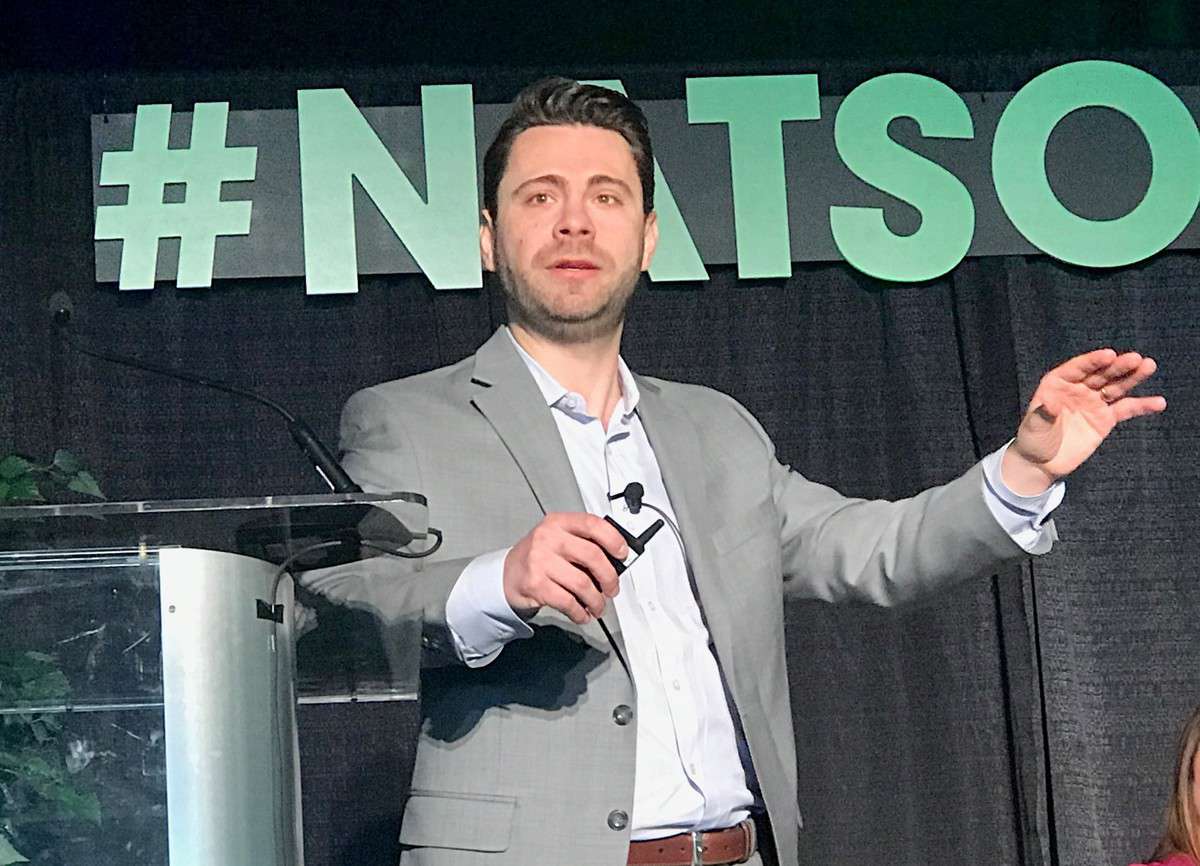NATSO, the trade group for highway travel center operators, is trying to preserve subsidies for biodiesel that let members profitably sell cleaner-burning fuel while planning what to do when the $1per blended gallon of biodiesel tax credit expires in 2022.
NATSO, formerly the National Association of Truck Stops, is also grappling with how to keep the U.S. Environmental Protection Agency (EPA) from granting what it considers excessive waivers to the Renewable Fuel Standard (RFS) that drive up the pump price price of biodiesel and other renewable fuels.
Biodiesel adds soy oil and animal fats to petroleum-based diesel, resulting in a cleaner-burning fuel for heavy-duty trucks that reduces particulate and planet-warming greenhouse gas (GHG) emissions.
Two-front battle
“The RFS and biodiesel both have automatic triggers beginning in 2022 that if nothing is done between now and then, could potentially result in a pretty substantial dip in federal incentives,” David Fialkov, NATSO vice president of industry affairs, told FreightWaves in an interview Saturday at the group’s annual conference in Denver.

The RFS requires transportation fuel sold in the United States to contain a minimum volume of renewable fuels. It originated with the Energy Policy Act of 2005 and was expanded and extended by the Energy Independence and Security Act of 2007.
The categories of biofuels include corn-based ethanol, biomass-based diesel, which includes renewable diesel, and advanced cellulosic ethanol. The RFS calls for 36 billion gallons of biofuels to be produced annually by 2022. Biodiesel accounts for about 2 billion gallons of the mandate.
“The Trump administration has done a lot to diminish demand for biofuels primarily by exempting a lot of refineries from having to comply,” Fialkov said. “And when they do that, it diminishes the value of the credits that you get when you blend, which in turn diminishes the value of biofuels.”
Exemptions for small refineries granted in the past three years reduced demand for biodiesel by 550 million gallons, Politico reported in October 2019.
Complicated credit scheme
The RFS credit scheme is complicated. But it is similar to currency, which rises or falls depending on uncertainty. When the biodiesel mandate is lowered, the credits that come with generating the biofuel have less value.
“I want it to be a much more forward-looking, predictable, certain process,” Fialkov said. “Who’s going to invest in bringing a product to market if they think that the next year somebody by fiat could completely undermine the value of the product?”
The EPA manages the RFS. In trying to help small refineries compete, it exempts them from compliance, which reduces the overall number of blending credits generated.
NATSO wants the RFS reformed so “it doesn’t continue to have these kinds of landmines that can undermine the investment-backed expectations of travel centers.”
Other issues
The trade group is also tracking other issues that could make business harder for its members.
Commercializing rest stops — States seeking to install electric vehicle charging stations at highway rest stops to raise money are creeping toward offering other things like restaurants that would compete with travel plazas, Fialkov said. NATSO last week announced a plan with ChargePoint to install 4,000 charging stations at travel centers nationwide by 2030.
Labor regulation — The definition of an employee versus a contractor, such as California’s AB5 law, is worrisome. Travel plazas hire lots of part-time workers.
“A lot of folks are trying to expand the universe of employees for whom employers are responsible for providing benefits,” Fialkov said. “That’s the response to automation and the response to Uber and the gig economy. But lawmakers tend not to surgically target solutions to the problem. We get caught in the crossfire there.”
Federal infrastructure spending — NATSO supports replenishing the nearly broke Federal Highway Trust Fund to pay for badly needed repairs on the nation’s roads and bridges. But the lack of congressional support to raise federal fuel taxes is leading to states passing their own fuel tax increases.
The resulting mishmash of state taxes penalizes travel centers in states where truckers drive through without stopping to avoid paying more for fuel. Then there is truck-only tolling, adopted in Rhode Island and being considered in Connecticut.
“It’s a terrible policy,” Fialkov said, “but if I’m a lawmaker trying to find a politically expeditious way to raise money, why wouldn’t I tax the heavy trucks that are just driving right through?”











